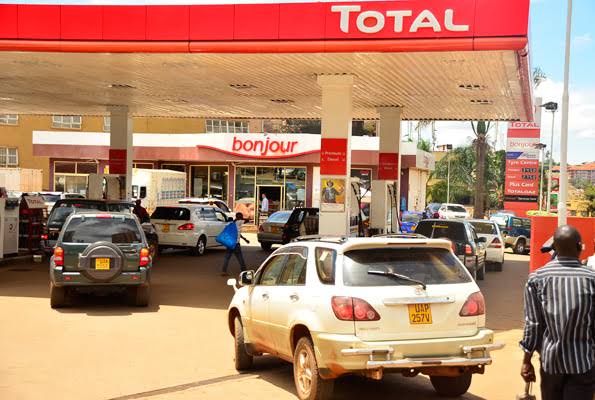In a stunning turn of events at Uganda’s parliamentary session on Tuesday, 5th September 2023, the Minister of State for Energy, Hon. Sidronius Okaasai, delivered a statement that left Members of Parliament fuming and incredulous as fuel prices continued their relentless climb.
Speaker Anita Among had already set the stage for a showdown, grilling the government over the ever-rising fuel prices that have been crippling the nation.
However, the response from Hon. Okaasai was nothing short of a bombshell as he staunchly defended the government’s non-interference stance on commodity prices.
With a straight face and an air of indifference, Okaasai declared, “Uganda operates a liberalized downstream petroleum market, where pump prices are determined by the forces of demand and supply.”
He cited the Petroleum Supply Act of 2003 and the Petroleum Supply General Regulations (2009), embellished with the amendments of 2012 and 2018, as the holy grail of market regulation.
Attempting to deflect blame, Okaasai then pointed fingers at global factors that he claimed were beyond Uganda’s control.
He emphasized, “The surge in global oil demand to record levels, especially during the summer season in Europe and the United States, has put immense pressure on oil prices.” MPs exchanged bewildered glances as he explained how seasonal factors and increased economic activity were apparently contributing to this “unavoidable” crisis.
The outrage reached its zenith when Hon. Ibrahim Ssemujju (FDC, Kira Municipality) demanded answers about the elusive fuel reserves. He declared, “He [Minister Okaasai] should come here and tell us what happened to the reserves.” He even threatened to move a motion without notice for Parliament to outrightly reject the minister’s statement.
Speaker Anita Among, not one to hold back, sternly criticized the government’s complacency, urging it to develop a tangible plan to mitigate the fuel price hikes instead of relying solely on market forces.
“The fuel prices have gone up; what is the Government’s immediate, medium, and long-term plan to address the escalating prices?” she challenged.
Across the border in Tanzania, where the current wave of fuel price escalation originated, there was some respite as the government introduced a “Fuel Stabilization Fund” to temper the price surge.
However, Minister Okaasai remained resolute, insisting that Uganda’s situation was entirely different and that his ministry could only “monitor the supply.”
As MPs left the session, the uproar lingered in the corridors of power. Many wondered whether the government’s hands-off approach would indeed help Ugandans weather the storm of soaring fuel prices or whether it was merely a political smoke screen to avoid responsibility.
One thing was certain – the fury in Parliament was matched only by the frustration felt by Ugandan citizens who had been left to grapple with the harsh reality of fuel prices that seemed to have no ceiling.
Do you have a story in your community or an opinion to share with us: Email us at Submit an Article









